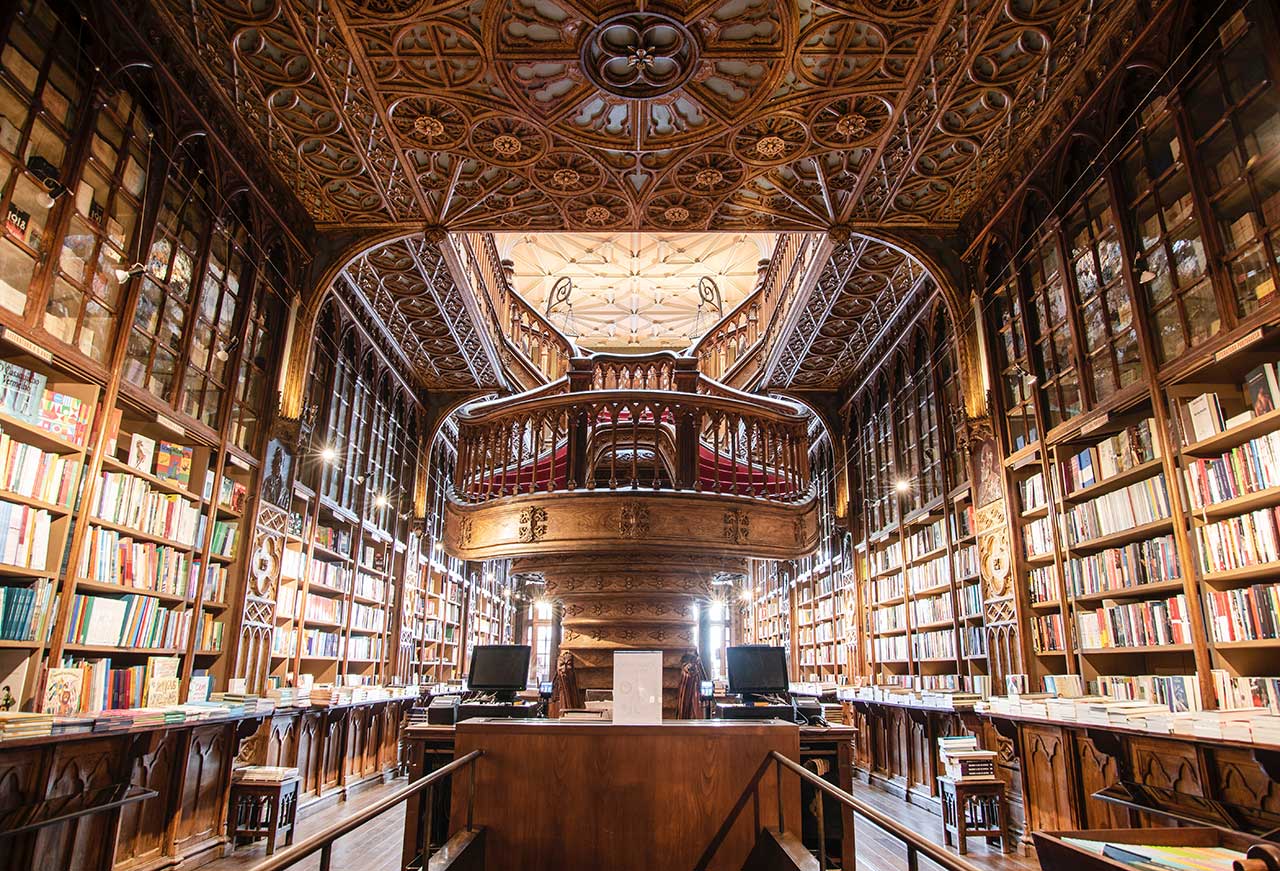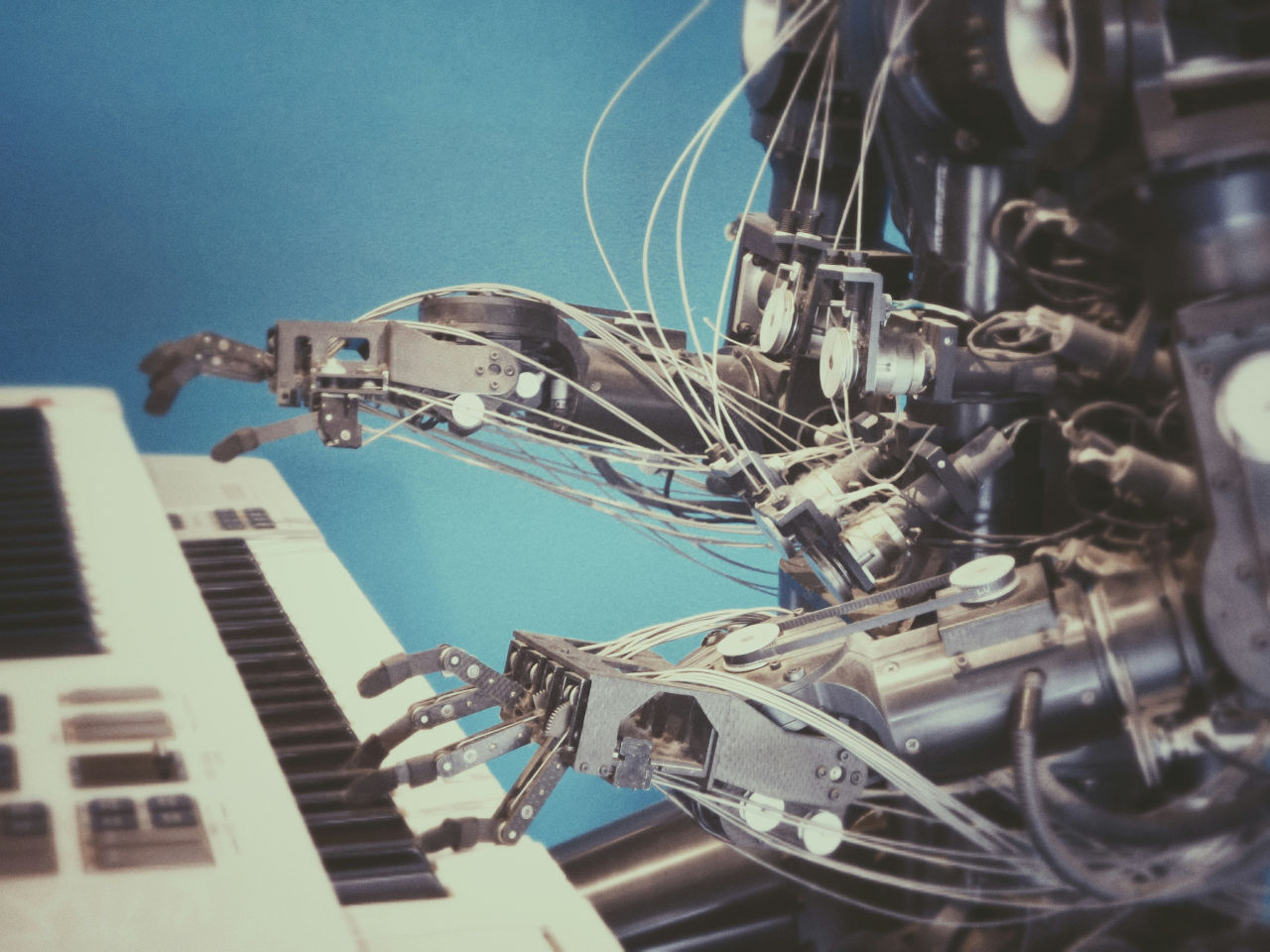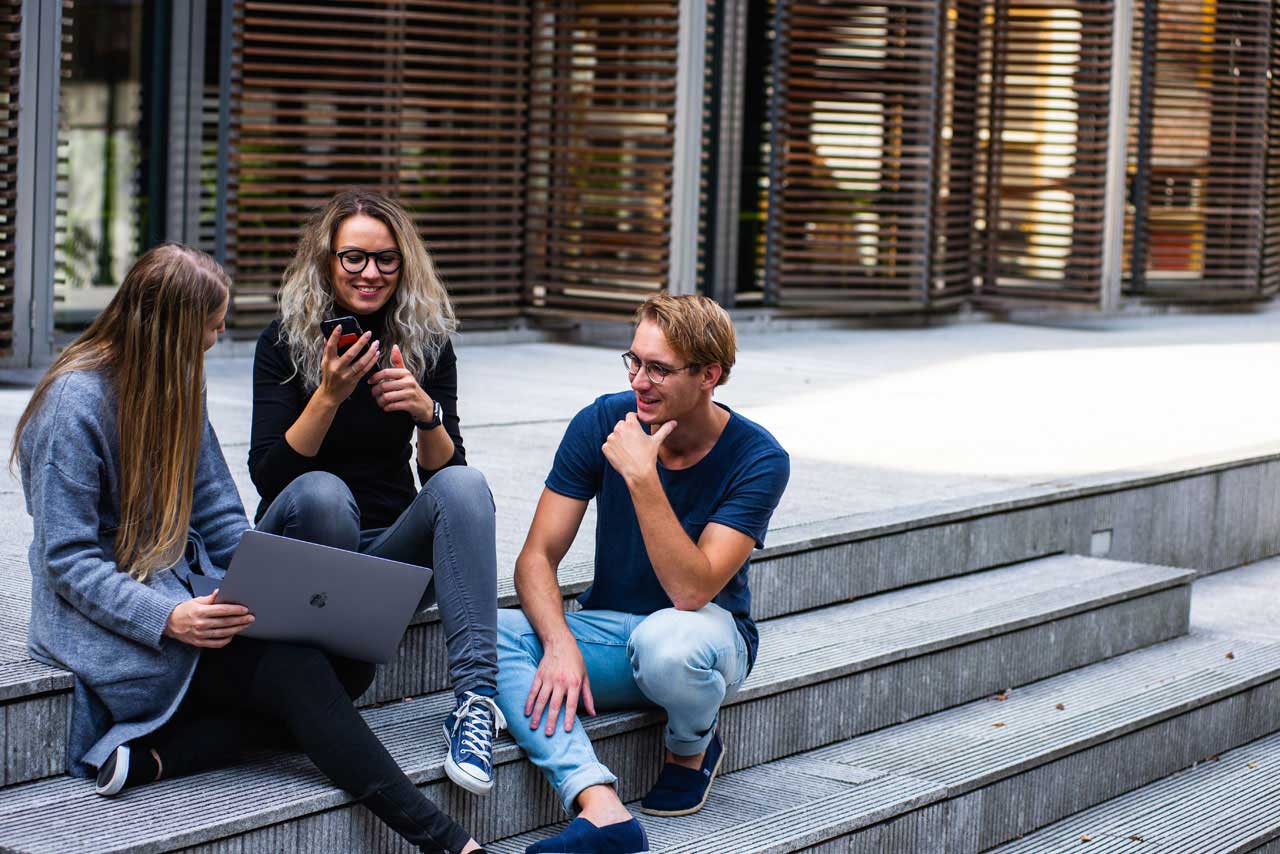While the Classical Liberal Arts typically fall at the bottom of the education hierarchy today, I think it’s one of the most valuable education curriculums you can follow to prepare yourself for an uncertain future.
Why? Because nobody can predict which technical or job skills will stay in-demand in a future that will be dominated by robots and artificial intelligence. But studying emerging trends, we do know that we will need to train the uniquely human qualities that can’t be replicated by machines.
These uniquely human qualities are what make us effective leaders and good communicators: creativity, empathy, social intelligence, curiosity, storytelling and adaptability.
The Liberal Arts has a bad reputation because it has the lowest barriers to entry of University degrees and it often attracts students that can’t get into the more competitive disciplines in Science, Technology, Engineering and Mathematics (STEM). In these technical disciplines, you will fall behind very quickly if you don’t diligently focus for long periods of time and complete the daily work assignments.
However, if you really dedicate yourself to studying the Classical Liberal Arts it can be one of the most challenging and helpful University degrees. There are few forms of higher education more effective at building individuals with strong character who are well-rounded and flexible in the face of disruptive change.
And now thanks to the Internet, you don’t necessary have to go up to a 100K in debt to get a Liberal Arts education. For a fraction of the cost of a University degree, you create your own own Liberal Arts education while traveling the world and directly experiencing the fascinating cultures, history and museums across the cultural mosaic of human civilization.
What Is The Meaning of Liberalism?
A Classical Liberal Arts education studying the Trivium and Quadrivium while reading the classical and modern work of literature and philosophy that form the generally agreed upon Liberal Arts canon in Western education.
Another important component is regularly debating the most important issues of our day and the human condition with other intelligent and informed people who can challenge you to see your own cogntive biases and reality tunnels.
While the classical meaning of liberalism is often bastardized by pundits in the media, a liberal is a someone who works to freed himself or herself from the bigotry, authoritarian attitudes and established dogmas.
Liberalism often gets a bad name because of the elitism attached to attaining a Liberal Arts education at a prestigious University. Many highly educated people perpetuate this elitism through their often thinly-veiled contempt for people of lower educational attainment and lesser financial means.
This is misguided. A real liberal is someone who seeks the freedom and equality of all people — everywhere in the world — and does not allow him or herself to be caged by any institutional, ideological or class biases.
The 4-Year Liberal Arts Reading List
This 4-Year Year Liberal Arts reading list is a guide to many of history’s most important books at least from a Western perspective (please feel free to share a similar canon from other cultures that has been translated into English in the comments).
If you read the books on this 4-year Liberal Arts reading list you can learn directly from the thinking patterns of history’s greatest thinkers and I can guarantee it will transform your world and make you a better person.
This reading list has been reviewed yearly since 1937 by the Liberal Arts faculty at St. John’s College to create a generally agreed upon Liberal Arts curriculum that anyone can study in their own time.
The first two years span over 2,000 years of intellectual history and the last two years are from the last 300 years that have seen the development of the ideas that underpin the science and freedom we enjoy in the modern world.
The Liberal Arts reading list is organized in chronological order but you don’t necessary need to read these books in any particular order.
If you’re really determined, you can complete the entire Liberal Arts canon in about 4 years by reading a book every 1-2 weeks (some larger books will take longer to read though)
However, for most people this education may stretch on for decades as you read the books on the list that most interest you (and I’ve also created a 21st Century Reading List of other books I recommend reading as well).
1st Year: Greek Civilization and the Classical Liberal Arts
The foundation of Western Civilization was laid by the Greeks. Pythagorus, socrates, Plato and Aristotle created a liberal renaissance in the ancient European world.
The Socratic Method and The Trivium still form of the foundation of one the best systems ever created for critical thinking and rational debate.
- HOMER: Iliad, Odyssey
- AESCHYLUS: Agamemnon, Libation Bearers, Eumenides, Prometheus Bound
- SOPHOCLES: Oedipus Rex, Oedipus at Colonus, Antigone, Philoctetes, Ajax
- THUCYDIDES: Peloponnesian War
- EURIPIDES: Hippolytus, Bacchae
- HERODOTUS: Histories
- ARISTOPHANES: Clouds
- PLATO (SOCRATES): Meno, Gorgias, Republic, Apology, Crito, Phaedo, Symposium, Parmenides, Theaetetus, Sophist, Timaeus, Phaedrus
- ARISTOTLE: Poetics, Physics, Metaphysics, Nicomachean Ethics, On Generation and Corruption, Politics, Parts of Animals, Generation of Animals
- EUCLID: Elements
- LUCRETIUS: On the Nature of Things
- PLUTARCH: Lycurgus, Solon
- NICOMACHUS: Arithmetic
- LAVOISIER: Elements of Chemistry
- HARVEY: Motion of the Heart and Blood
- Essays by: Archimedes, Fahrenheit, Avogadro, Dalton, Cannizzaro, Virchow, Mariotte, Driesch, Gay-Lussac, Spemann, Stears, J.J. Thompson, Mendeleyev, Berthollet, J.L. Proust
2nd Year: Roman, Medieval and Renaissance Periods
The Roman Empire lasted nearly 700 years before collapsing under the weight of its immorality and greed.
The period known as the Dark Ages followed, which was characterized by illiteracy and the authoritarian rule of the Catholic Church until the Italian Renaissance and birth of modern world.
- THE HEBREW BIBLE
- THE BIBLE: New Testament
- ARISTOTLE: De Anima, On Interpretation, Prior Analytics, Categories
- APOLLONIUS: Conics
- VIRGIL: Aeneid
- PLUTARCH: “Caesar,” “Cato the Younger,” “Antony,” “Brutus”
- EPICTETUS: Discourses, Manual
- TACITUS: Annals
- PTOLEMY: Almagest
- PLOTINUS: The Enneads
- AUGUSTINE: Confessions
- MAIMONIDES: Guide for the Perplexed
- ST. ANSELM: Proslogium
- AQUINAS: Summa Theologica
- DANTE: Divine Comedy
- CHAUCER: Canterbury Tales
- MACHIAVELLI: The Prince, Discourses
- KEPLER: Epitome IV
- RABELAIS: Gargantua and Pantagruel
- PALESTRINA: Missa Papae Marcelli
- MONTAIGNE: Essays
- VIETE: Introduction to the Analytical Art
- BACON: Novum Organum
- SHAKESPEARE: Richard II, Henry IV, The Tempest, As You Like It, Hamlet, Othello, Macbeth, King Lear, and Sonnets
- POEMS BY: Marvell, Donne, and other 16th- and 17th-century poets
- DESCARTES: Geometry, Discourse on Method
- PASCAL: Generation of Conic Sections
- BACH: St. Matthew Passion, Inventions
- HAYDN: Quartets
- MOZART: Operas
- BEETHOVEN: Third Symphony
- SCHUBERT: Songs
- MONTEVERDI: L’Orfeo
- STRAVINSKY: Symphony of Psalms
3rd Year: The Enlightenment in the 17th and 18th Centuries
The separation of the church and state led to the Enlightenment and a new golden age of scholarship and innovation for the modern nations who freed themselves from religious theocracy.
It also lead to the despiritualization of the Universe and the dehumanization of people who resisted the evangelical zeal of Western science and religion.
- CERVANTES: Don Quixote
- GALILEO: Two New Sciences
- HOBBES: Leviathan
- DESCARTES: Meditations, Rules for the Direction of the Mind
- MILTON: Paradise Lost
- LA ROCHEFOUCAULD: Maximes
- LA FONTAINE: Fables
- PASCAL: Pensees
- HUYGENS: Treatise on Light, On the Movement of Bodies by Impact
- ELIOT: Middlemarch
- SPINOZA: Theological-Political Treatise
- LOCKE: Second Treatise of Government
- RACINE: Phaedre
- NEWTON: Principia Mathematica
- KEPLER: Epitome IV
- LEIBNIZ: Monadology, Discourse on Metaphysics, Essay On Dynamics, Philosophical Essays, Principles of Nature and Grace
- SWIFT: Gulliver’s Travels
- HUME: Treatise of Human Nature
- ROUSSEAU: Social Contract, The Origin of Inequality
- MOLIERE: Le Misanthrope
- ADAM SMITH: Wealth of Nations
- KANT: Critique of Pure Reason, Foundations of the Metaphysics of Morals
- MOZART: Don Giovanni
- JANE AUSTEN: Pride and Prejudice
- DEDEKIND: “Essay on the Theory of Numbers”
- “Articles of Confederation,” “Declaration of Independence,” “Constitution of the United States of America”
- HAMILTON, JAY AND MADISON: The Federalist
- TWAIN: The Adventures of Huckleberry Finn
- WORDSWORTH: The Two Part Prelude of 1799
- Essays by: Young, Taylor, Euler, D. Bernoulli, Orsted, Ampere, Faraday, Maxwell
4th Year: The Modern World In The 19th and 20th Centuries
The liberal ideals, laws and sciences provided the foundation for the modern world and many of the ideas and philosophies today come from much deeper roots.
These books can help you develop a better understanding the freedoms and flaws of the modern world.
- Supreme Court opinions
- GOETHE: Faust
- DARWIN: Origin of Species
- HEGEL: Phenomenology of Mind, “Logic” (from the Encyclopedia)
- LOBACHEVSKY: Theory of Parallels
- TOCQUEVILLE: Democracy in America
- LINCOLN: Selected Speeches
- FREDERICK DOUGLASS: Selected Speeches
- KIERKEGAARD: Philosophical Fragments, Fear and Trembling
- WAGNER: Tristan and Isolde
- MARX: Capital, Political and Economic Manuscripts of 1844, The German Ideology
- DOSTOEVSKI: Brothers Karamazov
- TOLSTOY: War and Peace
- MELVILLE: Benito Cereno
- O’CONNOR: Selected Stories
- WILLIAM JAMES; Psychology, Briefer Course
- NIETZSCHE: Beyond Good and Evil
- FREUD: Introductory Lectures on Psychoanalysis
- BOOKER T. WASHINGTON: Selected Writings
- DUBOIS: The Souls of Black Folk
- HUSSERL: Crisis of the European Sciences
- HEIDEGGER: Basic Writings
- EINSTEIN: Selected papers
- CONRAD: Heart of Darkness
- FAULKNER: Go Down Moses
- FLAUBERT: Un Coeur Simple
- WOOLF: Mrs. Dalloway
- Poems by: Yeats, T.S. Eliot, Wallace Stevens, Valery, Rimbaud
- Essays by: Faraday, J.J. Thomson, Millikan, Minkowski, Rutherford, Davisson, Schrodinger, Bohr, Maxwell, de Broglie, Heisenberg, Mendel, Boveri, Sutton, Morgan, Beadle & Tatum, Sussman, Watson & Crick, Jacob & Monod, Hardy
Since nearly all of these books are in the public domain, you can find them for free online. You can search any of these books on the Project Gutenberg and download them directly to your tablet, smartphone or e-reader.
I have also created guides to classic ebooks and audiobooks that I recommend reading. If you find this resource valuable, please share the knowledge of the Liberal Education canon with your friends and family.





Thanks to this article, I’m now reading books that I would’ve never otherwise read. I noticed that you said the literature would be listed in chronological order but I couldn’t help but notice how Thucydides shows up on the list before Herodotus. Is this on purpose? Thanks!
Ever since I found this posting last , I’ve been systematically reading the books. (By January, I’ll be finished with the 1st Year’s works.)
And even though St John post’s their reading list on their site (albeit a slightly different, updated one), I’ve found the content useful in framing the utility and cultural nourishment reading, discussing and analyzing these works provides.
Wanted to just say thanks very much for putting this here, and am greatly looking forward to the next three years of the great Western Cannon!
Translations of Avicenna’s work, particularly ‘De Anima’ and the ‘Canon of Medicine’, should be included in Year 2, along with Averroes’ commentaries on Aristotle and Plato’s Republic. As for the 4th year, I cannot fathom how you have managed to leave out Foucault’s ‘Discipline and Punish’ and the first volume of ‘A History of Sexuality’. ‘A Secular Age’ by Charles Taylor, and Macintyre’s ‘After Virtue’ would be good editions to this section, as will Judith Butler’s ‘Gender Trouble’ and Edward Said’s ‘Orientalism’. It might also be worthwhile to add a number of critically acclaimed films to this section and an accompanying short textbook on film studies.
This is a great list! I added a lot of this to my Excel Sheet of books to read/buy in the next couple years. However, in my opinion, any list of Great Books must include Tolkien’s masterpiece, The Lord of the Rings. By far the most influential novel of the 20th Century. Thanks for putting this together! Like I said, I added a lot of this to my future reading list. Cheers!
Congrats Kyle, I too recently came upon your site and as I’m considering furthering my ‘light’ education, your reading list gives me a great starting point, it’s funny as today I visited my favourite 2nd hand book store seeking similiar titles to begin reading, sadly none were available.
Many thanks and will be sourcing the books from other providers.
Regards.
السلام عليكم
And what about The Islamic Civilization its scientists and philosophers and …. like : al-Khwarizmi ( Algoritmi ), Ibn Khaldun ,Avicenna, Averroes, Ibn al-Nafis, Alhazen … etc Whose laid The foundation of Western Civilization too
I’m not familiar with them, feel free to share some of your book recommendations with our readers!
Kyle, thank you for this brother. Look forward to embarking on this journey, taking on your incredible curriculum. May life and the world grant you its gifts in abundance. I would appreciate any advice from you to make this journey as smooth as possible.
I think that it would be useful to include a study of anacycloses, since the curriculum deals extensively with history, and anacycloses is the study of time. with regards to this, I would refer to Polybius Ibn Khalduns Mukadiama and the political writings of Ian Dallas.
I also believe in addition to this curriculum a study of psychoanalysis is paramount since it gives a deep understanding of emotional drives that cause people to act in certain ways
Thank you
And what about the India Civilization scientists and philosophers like Aryabhata, Brahmagupta, Sushruta who laid the foundation of Arabic Civilization (Like the so called Arabic numbers – originally derived from Indian Decimal System) and later on the so called Western Civilisation? 😉 Just google the names and you will get enough citations.
Just stumbled upon your website and I just have to say I love it so much. Love the articles, something that’s really up my ally being an autodidact myself. I really want to study the Liberal arts next and reading your article, it seems like you’re also studying it. How much time do you spend each day on studying them. Just curious. Oh have you read How To Read A Book by Mortimer Adler and The Well Educated Mind by Susan Bauer? I think they are good books to start with before starting the endeavor of studying the Liberal arts.
I’d recommend 1-2 hours a day. I find audiobooks also help to listen on-the-go. I haven’t read those books but I’ve heard the Well-Educated Mind is excellent.
Hello Kyle,
Though I appreciate the work that went into developing your, “How To Get A Liberal Arts Education (Without Going To University)” instructional web page, I just have one question. You mentioned, “A real liberal is someone who seeks the freedom and equality of all people — everywhere in the world — and does not allow him or herself to be caged by any institutions or class biases.” What I find interesting, more than what is included in your (suggested) four-year curriculum, is what is not included. If you insist that, in order to be, “a real liberal” one must not be “caged by any institutions or class biases”, than this list is dead on balls-accurate. But in order to acquire some sense of liberalism, you left out a plethora of figures who would help people to do just that. You left out thinkers such as: Abelard, Erasmus, Plotinus, Origen, Boethius, Bernard, Ockham, Bacon, Hume, John Stuart Mill, Burke, (William) James, Popper, and Hayek.
As an example, it’s important to understand, for instance, that HEGEL and HEIDEGGER, probably are the greatest influences toward moving pre-WWII German students squarely into the heart of Naziism, with such ideas like HEIDEGGER’S that existence is, “not for every man but only for the strong”, but then to not offer on your list another thinker who could provide a direct counter-point to that, for instance, Karl Popper.
In my opinion, Liberal-ism, (not just being a liberal), is a pursuit of a more classical ideal, rather than a pseudo-political ideal. Therefore, and having read most of what is on your list, in addition to the thinkers I suggested, it is important “never to have too much Plato and not enough Aristotle” (Herman), and vice-versa. People should be encouraged to read a great deal on both sides of thinking in Western culture, and always seek out the counter-point. I’ll leave it at that. Best to you and your endeavors.
Thanks for this! It’s really helpful 🙂
P.S I really like the site. Curation of useful content is a definite plus in my books!
Thanks again